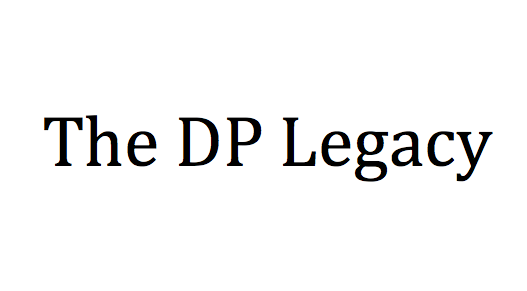Formerly a translator (French, Spanish, Lithuanian), she is an active member of the Lithuanian community, having served on various committees, chaired the Folk Dance Festival here in 2000 as well as other events. Currently she is the representative for Canada on the Lithuanian Seimas (Parliament) and World Lith. Community Advisory Commission, and Lithuanian Canadian Community liaison for the Lithuanian Museum- Archives of Canada. Her two children both speak Lithuanian and have been active in the community.
How do you know if you are a DP? If in your family, hors d'oeuvres were small sandwiches, usually consisting of “black” bread, salami and pickles, black bread and herring or black bread and cheese, with added butter when you have guests, you are probably a DP. (We never called it dark rye.) If your black bread was from Roneems Estonian bakery in Toronto, you are likely in this category of refugees.
You may know people, like myself, educated in Canada, who speak English without an accent, but when we meet someone new, they know by the end of our first conversation that we are of Lithuanian (or Latvian or Estonian) descent. We are either DP's or their offspring. We have a long-term connection to our community. We are at least interested in, if not fully committed to, our community, and we understand the nuances of an almost obsolete concept – patriotism.
If you have ever been called a DP and felt insulted, you are definitely one of this group. How many in our audience are DP's? That would mean you came to Canada in the late forties, maybe in the early fifties, and you may relate to at least some of what follows.
My older sister was born in Vilnius, Lithuania, and spent the first four years of her life in a DP camp. She definitely remembers being a kid in Toronto and smarting from the label of DP, as in “DP! speak English…” or “Poor little DP”. Our parents had a sad but hopeful euphemism: to them it was an abbreviation for Dievo pauksteliai – God's little birds. They likened themselves to the sparrows in the scriptures, in the HOPE that God would take care of them. Hope was their mainstay. But they were left with only a memory of that hope, of the homeland they had left; memory they nurtured by turning it into a cause, a fight for freedom. And they passed this on to us.
As you know, the term DP applies to refugees who fled from the Soviet occupation of the Baltic and other Eastern European countries, and were sheltered by the Allies in special DP camps – barracks, schools, ruins and other housing in zones administered by the French, British and American military – mostly in Germany. The general sacred belief they carried with them like a security blanket, was the hope that they would return to their homes. That the Soviet rampage could not, would not be allowed to continue.
Was that self-deception? asks the reviewer of a book of interviews recently published in Lithuania, about “going West” between 1940 and 1944. Did they seriously, logically think they would go back to Lithuania, or was it an illusion, a desire to convince themselves that the exodus was temporary, that the Germans would prevent the Soviets from invading our territory? Which must be why, he says, they left their homes, their dreams, and buried their treasures in their yards or en route to Germany. Some even buried their winter clothing! I would also ask – Was that belief an argument they used to silence their own guilt for leaving aging parents, brothers and sisters – who didn't have the wherewithal – the circumstances, the knowledge, or simply the nerve – to get up and leave. Imagine the image of healthy, hearty Germany shattering in front of their eyes when they saw the sad state it was in when they arrived, in ruins from bombs and shortages. Certainly not a “haven” of refuge. (to be continued)
Ramune Jonaitis




